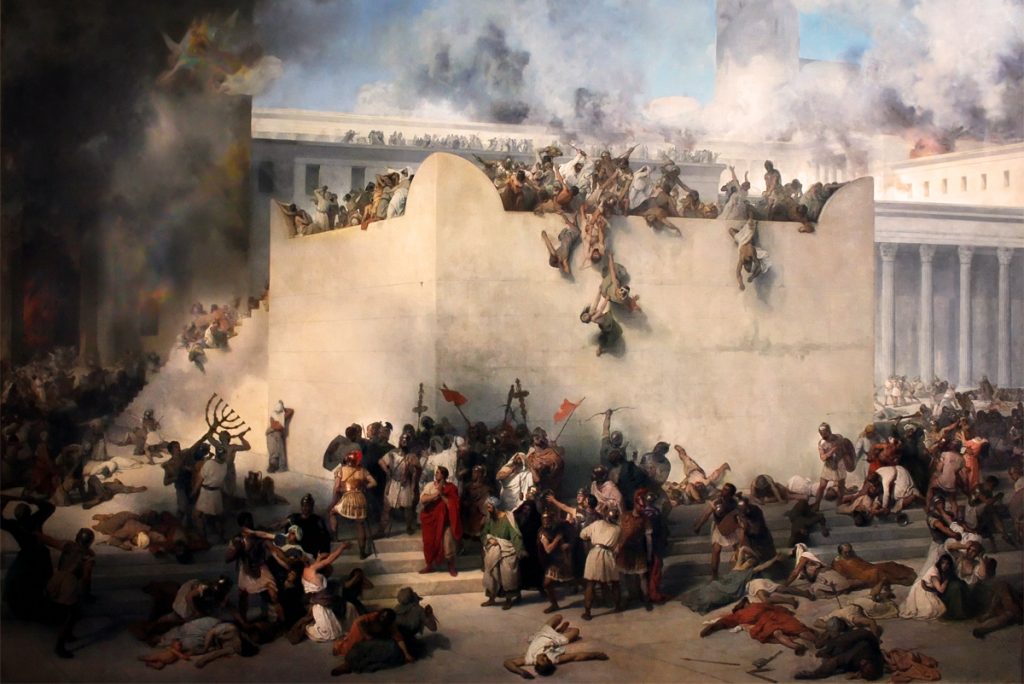“With what shall I come before the LORD, and bow myself before God on high? Shall I come before him with burnt offerings, with calves a year old? Will the LORD be pleased with thousands of rams, with ten thousands of rivers of oil? Shall I give my firstborn for my transgression, the fruit of my body for the sin of my soul?” He has told you, O man, what is good; and what does the LORD require of you but to do justice, and to love kindness, and to walk humbly with your God?” – Micah 6:6-8 ESV
The message of Micah concerns the historical people of Israel, but also in theological principle any person today who claims YHWH is God and seeks to understand what He requires (Micah 6:6-8). Rhetorically, the prophet Micah asked a few pointed questions concerning religious practices or offerings of sacrifices and good works. To use hyperbolic language, he exaggerates types of premium offerings given in abundance before YHWH to win His favor. That by doing so, Micah writes of the absurdity of such efforts as if God would somehow see past their asceticism and injustices. So as to continue in their rejection of the covenant, they were obligated to keep. While sacrificial offerings were standard practice at the temple in Jerusalem, it was an attempt to keep tradition before YHWH despite their heart condition before Him.
From the spirit of the covenant summed up in the pericope involving the Shema (Mark 12:29-34), we are given a clear view of its intent, and it all comes around to love. Active love for YHWH and people bring about the fulfillment of what God requires. Namely, a love fulfilled through justice (miš•pāṭ’), lovingkindness (ḥĕ’•sĕḏ), and humility (ṣn c) as these were the virtues or fruit, that identified those who seek to honor and obey YHWH.
As we listen carefully to what Jesus said to the religious authorities in Jerusalem, He called them hypocrites by echoing what Isaiah prophesied concerning their hearts (Matt 15:7-9). Religious people who honor YHWH with their lips, their pen, or their pixelated words typed on a device while yet having their heart far from Him are they who worship or serve Him in vain. As it is a form of worship that involves teaching the doctrines the commandments of men (Col 2:22, Titus 1:14). Jesus was very clear in this message. Our heart’s desire for God and each other is that we would fulfill as a reciprocal obligation of love made by action and not just by what is instead going through the motions as an expression of personal self-interest.
The specific manner in which we demonstrate love appears from the reminder of Micah himself. Reiterated from the Mosaic covenant and prophet Isaiah (Deut 30:15, Deut 10:12, Is 56:1, Is 57:15, Is 66:2, Jer 22:3, Hos 6:6). While people have a high propensity toward veering away from God their creator or outright rejecting Him to live out disloyal lives, any effort to mask their sin or error through religious practices is ineffective and only worsens matters. As YHWH knows the heart and our thoughts and intentions, we can apply what we understand from His word through Micah. About what we should do to live in a way that pleases Him, according to the fruit of the Spirit (Gal 5:22-23) and the Shema by what we read through the words of Christ (Mark 12:29-34).
As we have the opportunity, and in daily life, we are better situated at peace before God and others when we humble ourselves and demonstrate consistent love for Him and others. At the same time, we speak and act justly among people. Yet only a principled justice guided by Scripture to keep from neglecting others, abusing people, or causing undue harm. If authentic Christians today were to practice what Micah wrote about, their efforts would lead to a pleasing lifestyle that honors God and His desires for us within the new covenant.














